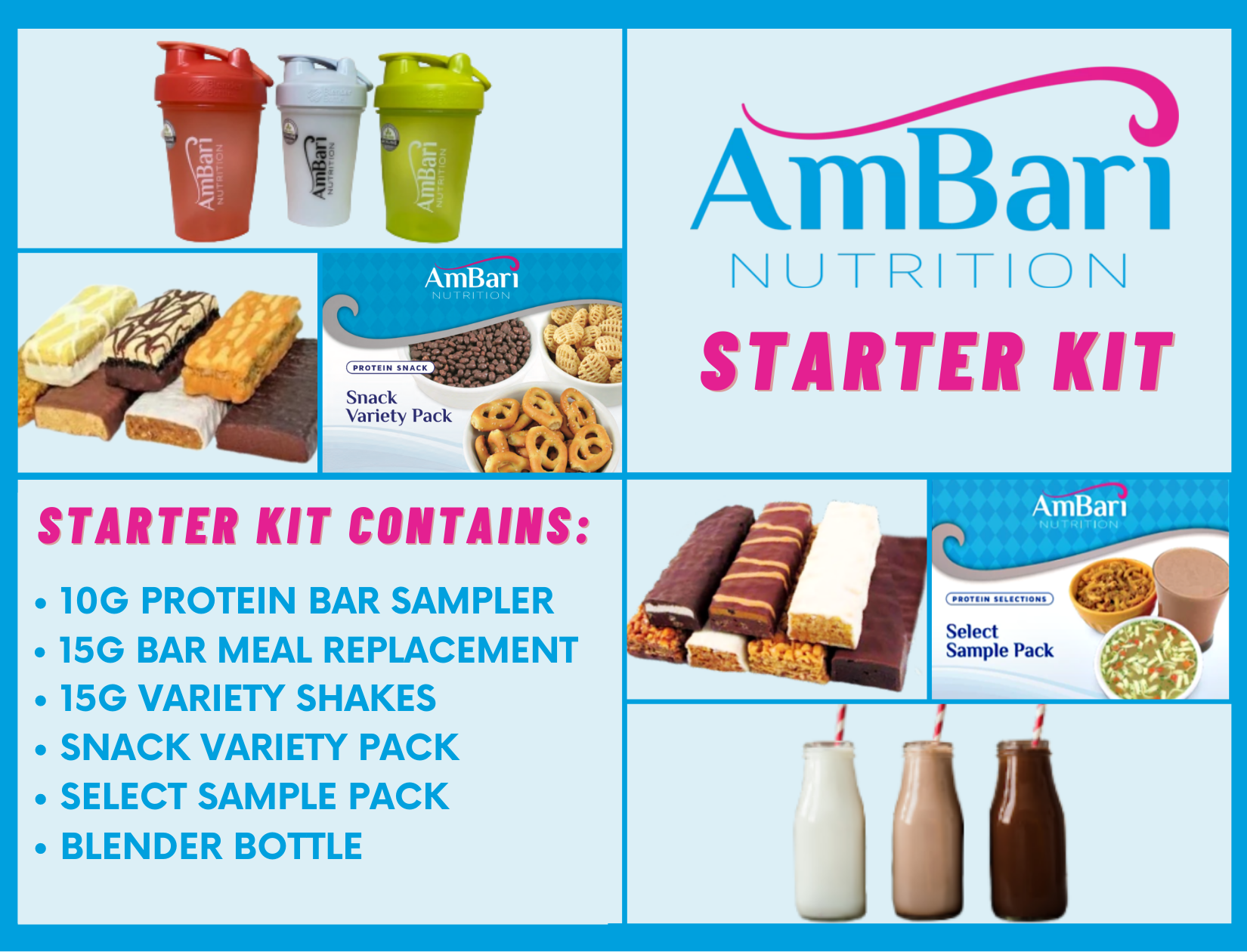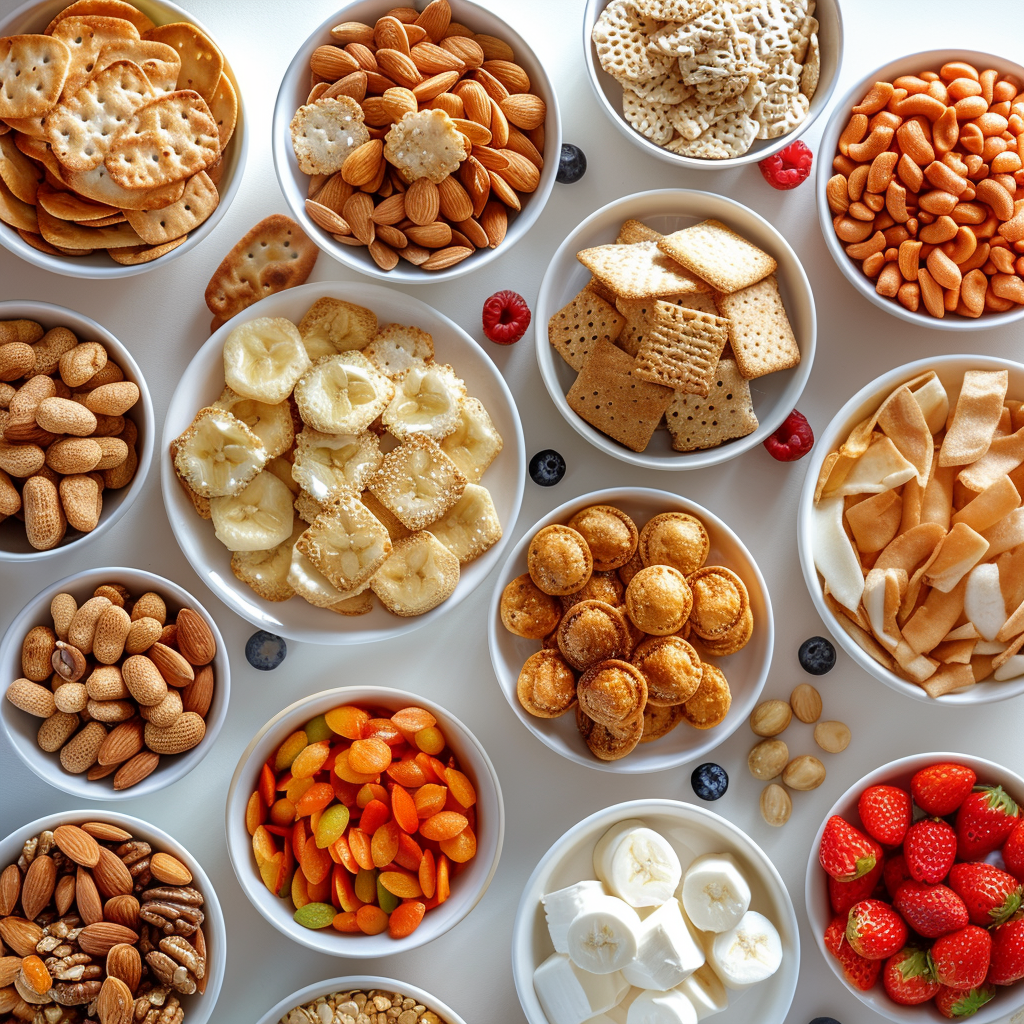Menu
Your cart is empty
Looks like you haven't added anything to your cart yet

Medical Weight Loss Meal Replacements: An Effective Way to Lose Weight
Medical weight loss meal replacements are specially formulated products designed to aid in weight loss by providing balanced nutrition while reducing caloric intake. They come in various forms, such as shakes, bars, soups, and smoothies, and can be an effective tool for individuals looking to lose weight under the supervision of healthcare professionals.
Benefits of Medical Weight Loss Meal Replacements
Nutritional Balance
Medical weight loss meal replacements are specifically designed to provide essential nutrients while keeping calorie counts low. They are formulated with a careful balance of vitamins, minerals, protein, and fiber to ensure that your body receives the necessary nutrients for optimal functioning, even as you reduce your overall calorie intake. By replacing some of your regular meals with these nutritionally complete options, you can effectively cut calories without risking nutrient deficiencies, which is a common pitfall of many traditional diets.
Portion Control
One of the significant challenges faced by individuals trying to lose weight is managing portion sizes. Many people unknowingly consume larger portions than necessary, leading to excess calorie intake and weight gain. Meal replacements offer an easy solution to this problem. They come in pre-measured, controlled portions that make it simple to consume the right amount of food without overeating. By using meal replacements, you can better manage your calorie intake and adhere to your daily calorie goals, contributing to more effective weight loss.
Convenience
Meal replacements offer an unparalleled level of convenience for those looking to lose weight. Planning, shopping for, and preparing meals can be time-consuming, especially when you're trying to balance a healthy diet with a busy schedule. Meal replacements eliminate the need for meal planning and preparation, allowing you to maintain a healthy diet without spending excessive time in the kitchen. With their quick and easy consumption, meal replacements are ideal for people with busy lifestyles or those who struggle to find time for meal preparation.
Faster Results
Incorporating meal replacements into a comprehensive weight loss program can help you achieve faster results compared to traditional dieting methods. By reducing calorie intake and promoting a feeling of fullness, meal replacements can aid in weight loss more effectively than relying solely on willpower and self-discipline. By controlling portions and providing balanced nutrition, meal replacements enable you to lose weight at a steady pace without feeling deprived. As part of a structured weight loss plan, meal replacements can help you see progress more quickly, keeping you motivated and on track toward reaching your goals.
Enhanced Satiety
Medical weight loss meal replacements often contain high levels of protein and fiber, both of which contribute to a feeling of fullness or satiety. This enhanced satiety can help reduce cravings and prevent overeating or snacking on unhealthy options throughout the day. By keeping you satisfied for longer periods, meal replacements can help you stick to your weight loss plan and make healthier choices overall.
Customizable to Individual Needs
Meal replacements are available in various forms, flavors, and nutritional profiles, allowing you to customize your weight loss plan according to your individual preferences and dietary requirements. Whether you have specific dietary restrictions or simply prefer certain flavors and textures, you can find a meal replacement that suits your needs. This adaptability ensures that your weight loss plan remains enjoyable and sustainable in the long run.
Types of Medical Weight Loss Meal Replacements
Shakes
Shakes are a popular and versatile form of medical weight loss meal replacements. They come in various flavors, textures, and nutritional profiles to cater to individual preferences and dietary needs. Typically consumed as a liquid, shakes can be pre-made or prepared at home by blending protein powder with water, milk, or a milk substitute. Many meal replacement shakes also contain added vitamins, minerals, and fiber to provide balanced nutrition. Easy to consume on-the-go and highly portable, shakes are an ideal option for those with busy schedules or looking for a quick and convenient meal replacement solution.
Bars
Meal replacement bars offer a more solid alternative to shakes and cater to those who prefer a chewable, portable option. Available in a wide range of flavors and textures, meal replacement bars are designed to provide balanced nutrition in a compact, easy-to-consume format. They are often enriched with protein, fiber, vitamins, and minerals to ensure you receive the essential nutrients needed for weight loss and overall health. Meal replacement bars can be conveniently carried in a bag or pocket and eaten discreetly, making them a practical choice for busy individuals or those on-the-go.
Soups
When someone thinks of medical weight loss meal replacements they don’t usually think of Soups. But soups serve as a warm and comforting meal replacement option, providing a satisfying alternative to shakes and bars. Meal replacement soups come in various flavors and can be consumed hot or cold, depending on your preference. They are typically low in calories while still providing essential nutrients like protein, vitamins, and minerals. Some meal replacement soups also contain fiber, which can help promote a feeling of fullness and support weight loss. Easy to prepare and consume, meal replacement soups offer a unique and versatile option for those looking to incorporate variety into their weight loss plan.
Smoothies
Smoothies have become a popular choice for meal replacements due to their refreshing taste, customizability, and nutritional benefits. Smoothies can be easily made at home using a blender, allowing you to choose from a wide variety of ingredients such as fruits, vegetables, protein powders, nuts, and seeds. By combining nutrient-dense ingredients, smoothies can provide an excellent source of vitamins, minerals, fiber, and antioxidants. They can also be tailored to suit specific dietary requirements or preferences, making them a highly adaptable meal replacement option. Pre-made smoothies are also available for purchase, offering convenience for those with limited time or resources for meal preparation.
Read More: Top Smoothie Meal Replacement Flavors
Puddings and Desserts
For those who crave something sweet or dessert-like, meal replacement puddings and desserts can be a satisfying option. These products come in various flavors and provide balanced nutrition in a more indulgent format. Often enriched with protein, vitamins, and minerals, meal replacement puddings and desserts can help satisfy cravings while still contributing to weight loss goals. Like other meal replacement options, they can be easily incorporated into a daily routine and provide a convenient solution for those seeking variety in their weight loss plan.
Choosing the Right Meal Replacement
Ingredients to Look For
When selecting a weight loss meal replacement, prioritize products containing high-quality ingredients that contribute to a balanced diet. Some key components to look for include:
- Lean proteins: Sources like whey protein, pea protein, or soy protein can help support muscle growth, repair, and maintenance while promoting a feeling of fullness.
- Healthy fats: Look for meal replacements containing healthy fats, such as those found in nuts, seeds, and avocado, which provide essential fatty acids and support overall health.
- Complex carbohydrates: Carbohydrates from whole grains or fibrous vegetables can provide sustained energy and help maintain blood sugar levels.
- Fiber: Fiber-rich ingredients, like fruits, vegetables, and whole grains, support digestive health and promote satiety.
- Vitamins and minerals: Meal replacements should contain essential vitamins and minerals to ensure you receive adequate nutrition while restricting calories.
Ingredients to Avoid
Avoid meal replacements with ingredients that may negatively impact your weight loss efforts or overall health. Some components to steer clear of include:
- Excessive sugar: High sugar content can lead to blood sugar spikes, increased cravings, and weight gain.
- Unhealthy fats: Stay away from meal replacements containing unhealthy fats, such as trans fats or excessive amounts of saturated fats.
- Artificial additives: Artificial sweeteners, colors, or preservatives may have adverse health effects and should be avoided when possible.
- Low-quality proteins: Low-quality protein sources may not provide the same benefits as their high-quality counterparts and may contain additional additives or fillers.
Personal Preferences and Lifestyle
When choosing a meal replacement, consider factors like taste, texture, and convenience that align with your personal preferences and lifestyle. Some factors to consider include:
- Flavor preferences: Meal replacements come in various flavors, so select options that you enjoy and will look forward to consuming.
- Texture preferences: Some people prefer smooth, creamy shakes, while others enjoy chewable bars or thick smoothies. Choose a meal replacement with a texture that appeals to you.
- Convenience: Consider how easily a meal replacement can be incorporated into your daily routine. Pre-packaged options may be more suitable for those with busy schedules, while homemade smoothies or shakes might work better for those who enjoy preparing their meals.
- Dietary restrictions: If you have specific dietary needs or restrictions, such as allergies, intolerances, or ethical considerations, choose meal replacements that cater to those requirements.
Potential Risks and Side Effects
While meal replacements can be beneficial for weight loss, it's essential to be aware of potential risks and side effects, such as:
Nutrient Deficiencies
Although meal replacements are designed to provide balanced nutrition, over-reliance on them may lead to nutrient deficiencies. To avoid this issue ensure your diet includes a variety of whole foods, such as fruits, vegetables, lean proteins, whole grains, and healthy fats, to provide essential nutrients that meal replacements may lack.
Over-reliance on Meal Replacements
Relying too heavily on meal replacements can have negative consequences, including:
- Unhealthy relationship with food: Overuse of meal replacements may lead to an unhealthy reliance on them and hinder your ability to make healthy food choices in the long term.
- Difficulty maintaining weight loss: Weight loss achieved primarily through meal replacements may be difficult to sustain once regular meals are reintroduced.
Conclusion
When using meal replacements for weight loss, remember to treat them as a supplement to a healthy diet, not a complete replacement for regular meals. Consult with healthcare professionals for personalized advice, and choose options that suit your preferences and lifestyle. Lastly, be aware of potential risks, like nutrient deficiencies or unhealthy eating habits, that could arise from relying too much on meal replacements.
FAQs
Q: Are medical weight loss meal replacements suitable for everyone?
A: While meal replacement shakes are generally considered safe and effective for weight loss and weight management, they may not be suitable for everyone, especially those with certain medical conditions such as dental issues. It's important to consult with a healthcare professional to determine if meal replacements will be beneficial for you, especially if you have any underlying health conditions or are taking medications that may interact with certain ingredients.
Q: Can I use meal replacements as my sole source of nutrition?
A: No, meal replacements should not be used as the only source of nutrition. They should be combined with a well-balanced, nutrient-dense diet to ensure optimal health and weight loss.
Q: What are the best meal replacements?
A: The ideal meal replacement shakes or bar for weight loss should be free from artificial ingredients, low in sugar, and packed with protein, fiber, and essential nutrients.
Q: Are there any side effects to using meal replacements?
A: Potential side effects of using meal replacements may include nutrient deficiencies or an over-reliance on meal replacements, leading to an unhealthy relationship with food. To minimize these risks, incorporate whole foods into your diet and consult with a healthcare professional.
Q: How do I know which meal replacement is right for me?
A: When selecting a meal replacement bar or shake, consider the serving size, added sugars, protein content, and calorie count. If you are undergoing weight loss surgery or looking for a weight loss diet solution, meal replacement shakes and bars are a popular option and do have benefits.
- Choosing a selection results in a full page refresh.




































